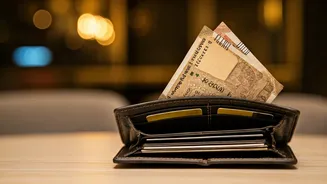Initial Date Dilemma
The survey delved into the common question of who should cover the expenses on a first date, a topic often debated in various social circles. Traditionally,
there have been established norms and expectations surrounding this situation. The survey aimed to unveil how Indian women view this aspect of dating in contemporary society. The findings provide a glimpse into the evolving dynamics and preferences within the dating landscape. This information is crucial for understanding the current cultural norms and expectations surrounding financial interactions on the initial stages of a relationship. The study provides a basis to understand if expectations are changing or are remaining the same as earlier.
Financial Expectations
The survey results provide a fascinating insight into the financial expectations on a first date. The data collected showed the varying perspectives among Indian women regarding who should pay the bill. The analysis uncovered how different factors, such as age, socioeconomic background, and individual values, influenced these preferences. The responses ranged from expecting the man to cover all expenses to a preference for splitting the bill equally, indicating the diverse viewpoints within the community. These findings highlight the importance of open communication and mutual understanding in navigating these financial aspects of dating. Furthermore, the survey also explored the impact of social media and changing gender roles on these expectations. This gives a clearer understanding on how the survey was conducted and the expected responses.
Shifting Social Norms
The research further investigates the changing social norms and the impact on dating dynamics. Traditionally, there was a prevalent expectation for men to shoulder the financial responsibility on a first date. However, this survey aimed to understand whether this norm still holds true in the contemporary Indian context. The responses provide a clear view on how Indian women are adapting to evolving societal expectations and whether there has been a shift toward greater equality in financial contributions. This exploration not only offers a view of dating etiquette but also sheds light on broader social changes, reflecting evolving gender roles, economic independence, and individual autonomy. These findings could signal a broader shift in attitudes towards financial aspects of relationships.
Diverse Perspectives Explored
One of the key strengths of this survey lies in its exploration of the diverse perspectives among Indian women. The researchers ensured they covered a wide range of backgrounds and viewpoints. The results showcased how factors like regional differences, educational levels, and professional experiences shaped preferences on first dates. Some women preferred a more traditional approach, while others embraced modern approaches. This variety emphasized the complexities and nuances of modern dating. Furthermore, the research also gave deeper understanding on the reasons behind the preferences, including the values of respect, equality, and financial independence. This gives a clearer picture on how diverse preferences co-exist, reflecting the evolving cultural landscape.
Modern Dating Insights
The survey offers valuable insights into modern dating trends and how Indian women perceive relationships. The analysis provides information on how these trends are shaped by factors like globalization, digital communication, and changing social dynamics. The results reflect the evolution of expectations, attitudes, and behaviors within the dating scene. The research also explores the impact of technology, including online dating platforms and social media, on how people meet, interact, and establish relationships. Furthermore, the survey gave the perception of evolving values, such as the increasing importance of equality, open communication, and shared responsibilities. These insights are not only useful for those navigating the dating world, but also give an understanding of evolving societal shifts.



















